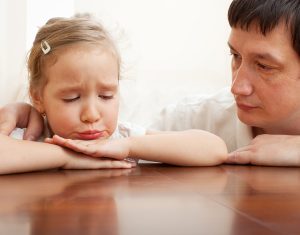Today, it’s likely that nearly everyone in America, is either in, related to someone who is part of, or knows someone in a blended family.
The older term, stepfamily, comes from the Old English word, steop, designating a bereaved orphan. Stepfamilies date back to colonial times when men and women were widowed, sometimes due to war. Indeed, as I’ll describe later, a blended (newer term) family involves loss and grieving. A blended family, is formed when one, or both, partners, have a child, or more, from a previous relationship. Today, this term encompasses many different types of family profiles: non-married cohabitants, double remarriages [when both partners remarry], when one or both, partners are widowed or divorced. A blended family can also develop in a dating relationship.
For those who were enchanted or frightened in childhood, by fairytales, stepmothers tended to be in charge as their husbands went to work. In “Hansel and Gretal” the children are sent into the woods, to fend for themselves, as a result of insufficient food, equality and love. In “Cinderella,” the stepmother fears that her stepdaughter’s beauty and charm will disadvantage her own two daughters chance of being chosen for marriage by the prince.
Myths, as fairy tales, mislead and can make it more troublesome for those forming blended families, leading them to unrealistic expectations and not being aware of complications inherent in the formation of a blended family. Some contemporary myths about blended families are:
- Love develops quickly between a stepchild and stepparent. Love that has depth requires the test of time as a child understands that s/he is listened to, cared for and respected. Demonstration of the aforesaid entails many hours of listening, tolerating, sharing time and experiences together. Still more complications are involved when a stepparent comes to the family with their own child/ren. Both parents and children need to understand and accept that there will be emotional differences in such situations. A stepparent puts undue pressure on him/herself when s/he expects to love a stepchild in the same way as his/her bio child, with whom one has had a history of a myriad of attachments and experiences. Blended love does not need to rival to be significant. As long as family members don’t expect instant bonding, they have the leisure to become a ‘new’ family more organically.
- Stepmothers are wicked. The role of the stepmother can be the most difficult, especially if she is the parent at home the most. If there is role confusion, for both child and stepmother, things can quickly spiral downward. When the new couple can work out their respective roles, this can be communicated to the child/ren in word and deed. Stepparents who understand accept a child’s feelings of loyalty, for their bio parent (and likely wishes for his/her parents to be reunited) may not take rejection and testing so personally. A stepparent should also be sensitive to a child’s potential feelings of disloyalty, and ensuing guilt, if the child does like her/him. Informed stepparents understand that their role is to be that of a special friend who cares, listens and carries through limitations set by the bio parent. A new relationship with the child/ren, independent of the bio parent is the reward. And so it grows…
- Children will adapt to their new blended family more easily if their bio parent withdraws. Nooo ! Such situations only create abandonment problems. In blended families, more is more. Children benefit from the love of each of their parents, blended and bio. When there is a parenting partnership among all of the parents everyone wins, especially the children.
- A stepfamily formed after the death of a parent is easier for children. When a child has lost a parent, both remaining parent and child need to first mourn the loss of that parent and the first family. Otherwise, there is a possibility of a ghost in the house. Idealization of a deceased parent is also difficult for a new parent. The new parent needs to be comfortable, not competitive, with a child’s effort to hold on to that first parent.
- Part-time stepfamilies are easier. Change and relationships take time. With
children going back and forth between two families, it takes longer to build relationships, gel and stabilize, especially if the rules are very different in each household. Each stayover is a transition – different home, expectations, limitations, rituals and people. Aside from how the adults handle the situation, there are also variations of the children’s ages, personalities, interests and sibling bondings. - Divorce and remarriage damage children. On the bright side, this does not need to be true !


 “When you’re a little kid, you don’t know what’s going on”
“When you’re a little kid, you don’t know what’s going on”
